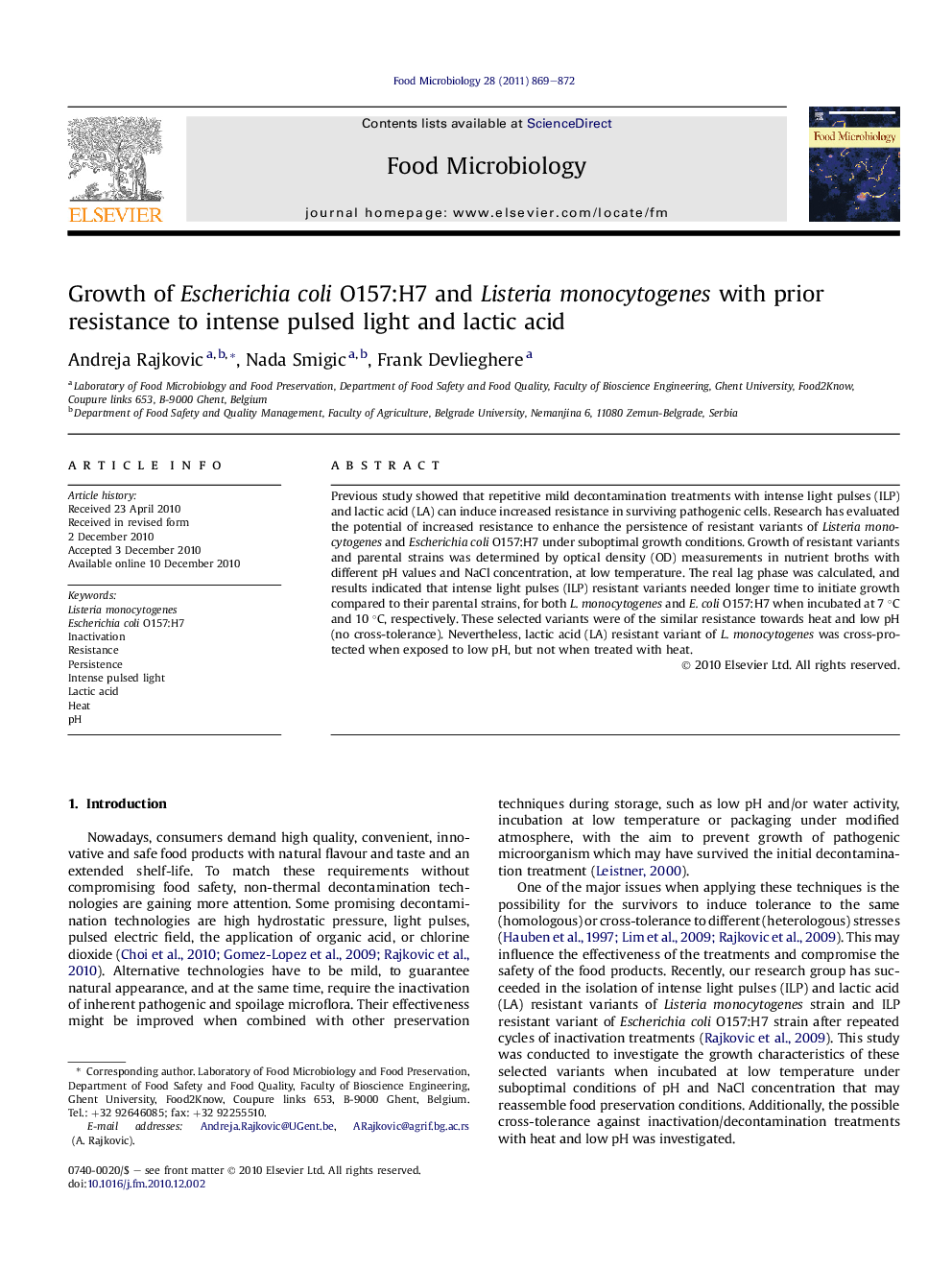| Article ID | Journal | Published Year | Pages | File Type |
|---|---|---|---|---|
| 4363146 | Food Microbiology | 2011 | 4 Pages |
Previous study showed that repetitive mild decontamination treatments with intense light pulses (ILP) and lactic acid (LA) can induce increased resistance in surviving pathogenic cells. Research has evaluated the potential of increased resistance to enhance the persistence of resistant variants of Listeria monocytogenes and Escherichia coli O157:H7 under suboptimal growth conditions. Growth of resistant variants and parental strains was determined by optical density (OD) measurements in nutrient broths with different pH values and NaCl concentration, at low temperature. The real lag phase was calculated, and results indicated that intense light pulses (ILP) resistant variants needed longer time to initiate growth compared to their parental strains, for both L. monocytogenes and E. coli O157:H7 when incubated at 7 °C and 10 °C, respectively. These selected variants were of the similar resistance towards heat and low pH (no cross-tolerance). Nevertheless, lactic acid (LA) resistant variant of L. monocytogenes was cross-protected when exposed to low pH, but not when treated with heat.
► Intense pulsed light and organic acids can induce resistance in foodborne pathogens. ► ILP resistant E. coli O157:H7 and L. monocytogenes – longer lag phase than parental strains at suboptimal growth conditions. ► LA resistant L. monocytogenes – shorter lag phase than parental strain under tested suboptimal growth conditions. ►ILP resistant E. coli 0157:H7 had similar resistance towards heat and low pH. ► LA resistant L. monocytogenes was cross-protected at low pH, but not when heat treated.
